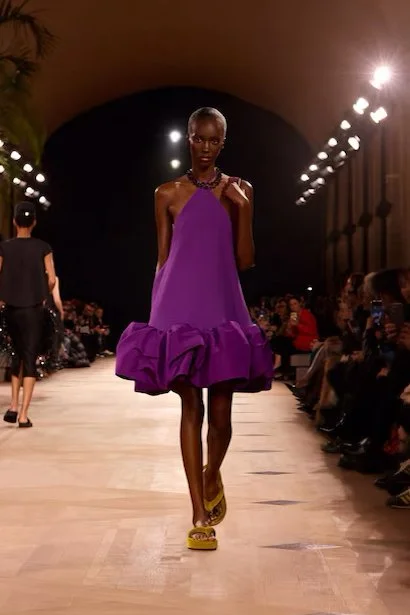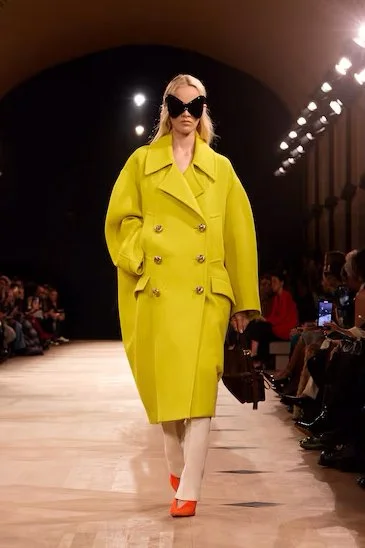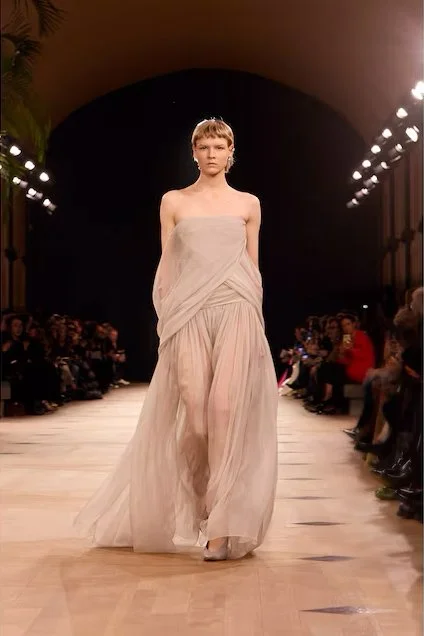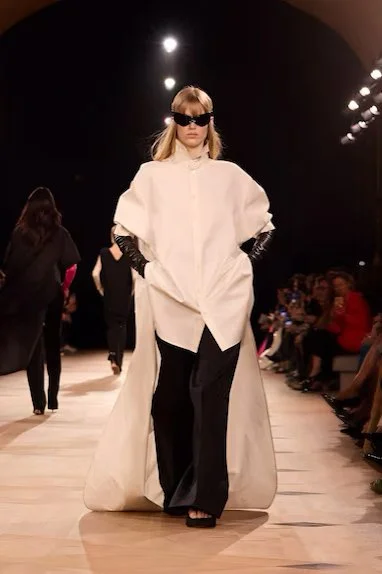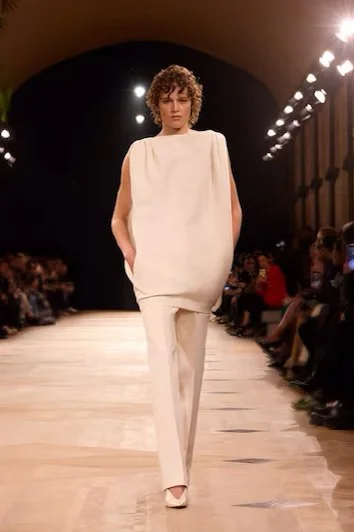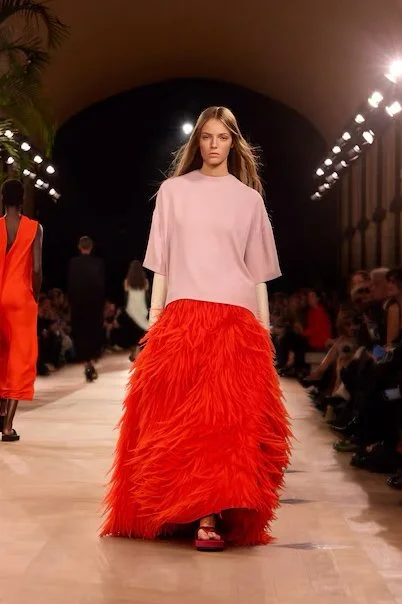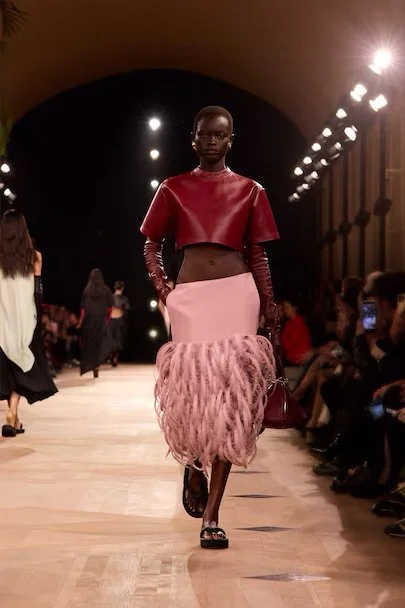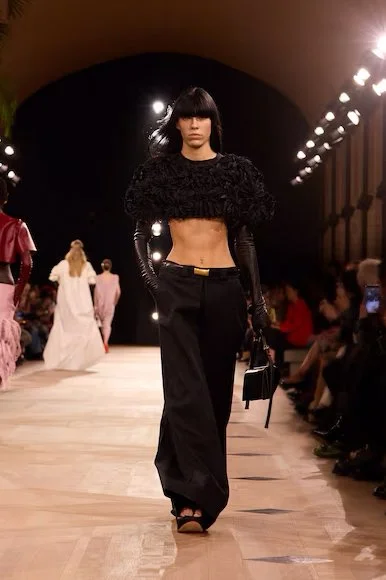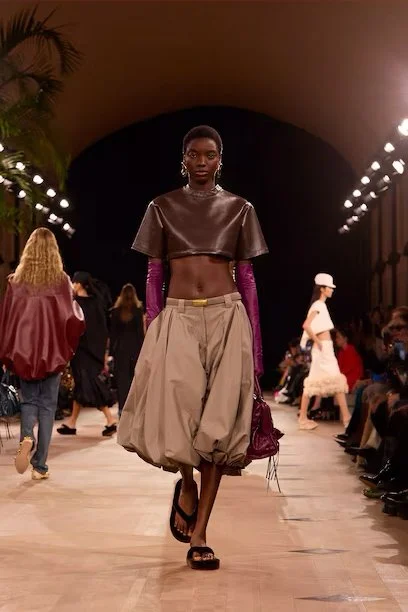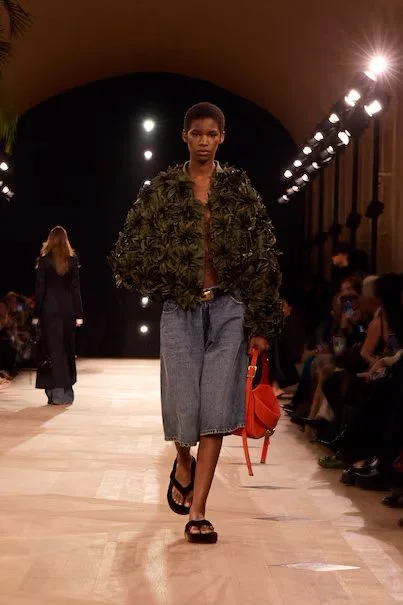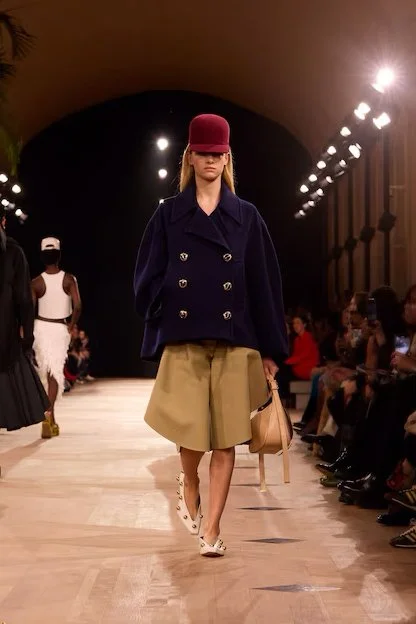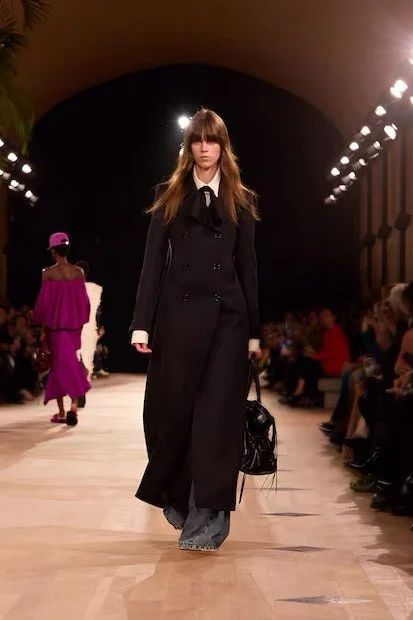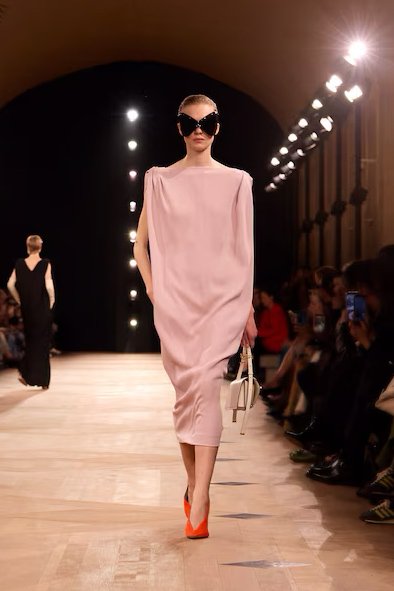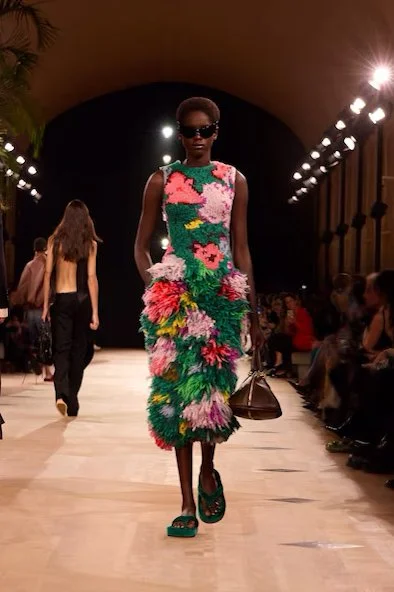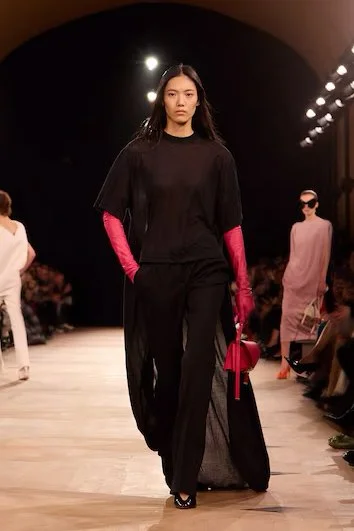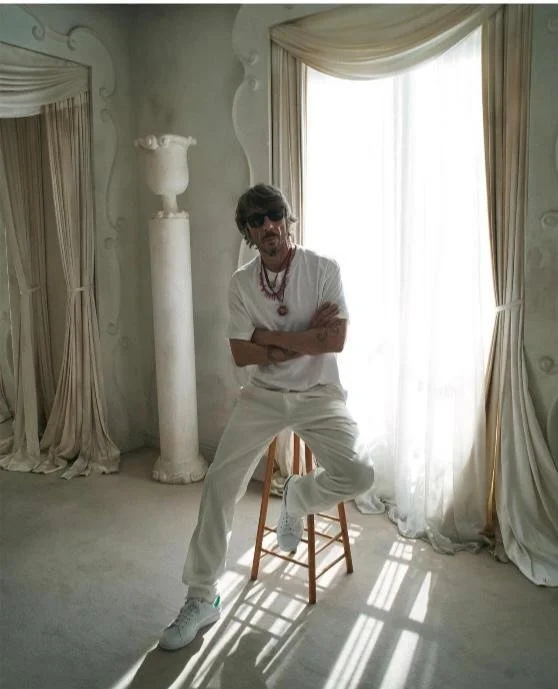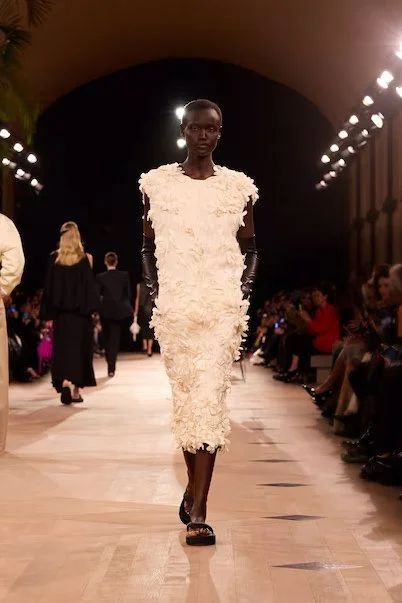Pierpaolo Piccioli: When the Heart Dresses Balenciaga
Silence, and feel the heartbeat.
That was the sound that marked the debut of the new Balenciaga under the vision of Pierpaolo Piccioli, in one of the most anticipated fashion moments of the season.
The collection, titled “The Heartbeat”, shows that the designer who once taught Valentino to cry now teaches Balenciaga to feel.
This is the beginning of a new era, The era of the architect of emotion.
A bridge between past and present
The show opened with a modern reinterpretation of the iconic 1957 sack dress — a defining piece of Balenciaga’s heritage. It served as a bridge between the sculptural past of Cristóbal Balenciaga and the restless present of contemporary fashion.
Cristóbal was known as the architect of volume, while Demna, in his tenure at the maison, deconstructed form. Pierpaolo Piccioli, in turn, united these universes through respect for history and a deep emotional devotion to couture.
From Valentino red to Balenciaga grey
For Piccioli, colour has always been a form of prayer. He began with a sequence of black-and-white looks, like neutral canvases waiting for meaning, before introducing bolder tones , lilac, acid green, magenta, and pink, hues that have long defined his creative language.
Gradually, the palette softened into delicate pastels blush rose and translucent grey unfolding like verses of a modern poem.
It was Piccioli’s way of reminding us that fashion, when it feels, still has the power to heal.
Between the past and the possible
Piccioli did not seek to pay homage to Cristóbal; he simply listened to him.
In his own words:
“I do not intend to revive the master, but to continue his method to create what does not yet exist.”
And he did just that with fabrics that moved like memories, silhouettes that spoke of faith in the future, and the courage to turn minimalism into emotion.
Generous volumes, almost monastic, met fabrics of weight and flow. Shoulders gained structure without rigidity. Shirts came with sweeping trains. Tailoring was precise yet fluid. Sandals were paired with feathered gowns, feathers also appearing with oversized t-shirts.
Sculpted coats floated as if shaped by air. Low waists and exposed midriffs brought youthful irreverence.
Balenciaga’s architectural precision and austerity were reborn through a new lens of delicacy.
Love as an aesthetic revolution
There is something political in Pierpaolo’s tenderness.
In a time when fashion often becomes noise, he proposes silence.
In a world obsessed with impact, he offers emotion.
His Balenciaga is about faith in humanity, about beauty as resistance.
Piccioli does not create to be remembered; he creates to remind the world that we can still feel.
Even so, he honoured the legacy of this iconic maison, founded in 1917 in Spain. His “homage” appeared in subtle gestures , blouses with sweeping trains, oversized visor-like sunglasses adorned with crystal headpieces, sculptural hats, and the revival of the emblematic City bag symbols of a legacy built by all who came before him.
The heart as a manifesto
At the end of the show, the audience applauded slowly, as if aware they had witnessed a rebirth.
No words only the sound of a heartbeat, the same that opened the show, the same now resonating within everyone present.
The luxury of the future, Piccioli seems to say, will not be what shines.
It will be what feels.
Courtesy photos Balenciaga


